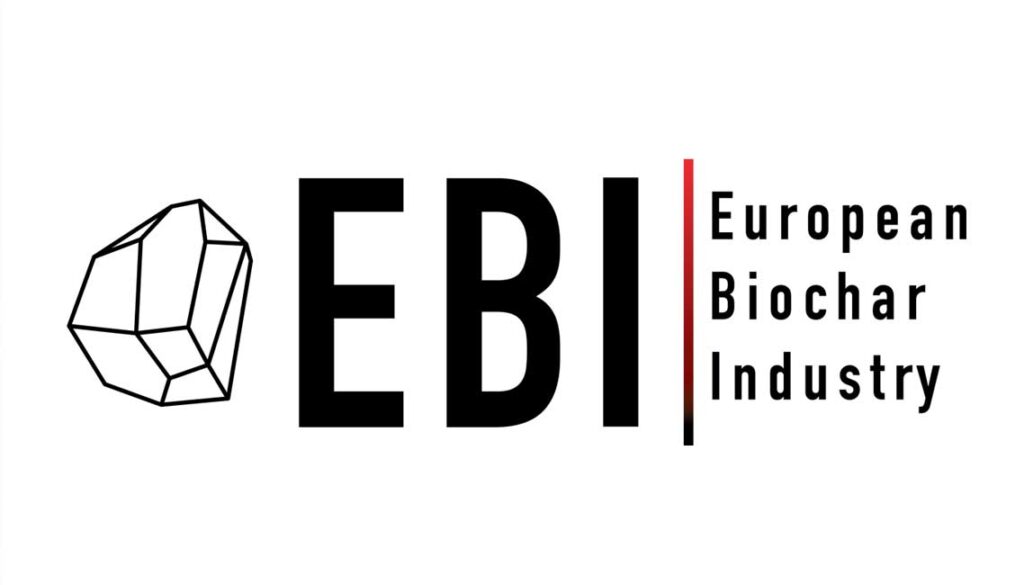The European Biochar Industry (EBI) organized an online event focusing on the European Biochar Market Report 2023/2024. The event, led by Hansjörg Lerchenmüller, provided a comprehensive overview of the current state and future prospects of the biochar market in Europe. This report synthesizes the information shared during the presentation, emphasizing the significant insights and projections made about biochar’s role in carbon removal and its various applications.
The Importance of Biochar in Carbon Removal
The presentation began with a discussion on the critical need for carbon emissions reduction and the role of carbon sinks. Lerchenmüller stressed the unique position of biochar as a no-regret solution for carbon removal that offers benefits in both emission reduction and carbon sequestration. Biochar is produced from biomass through pyrolysis, generating renewable energy while sequestering carbon, thus contributing to decarbonizing both the energy and metallurgical sectors.
European Biochar Market Dynamics
The report highlighted the increasing growth and maturation of the biochar industry, evidenced by the rising number of installations and the enhanced capacity for biochar production across Europe. By the end of 2023, a total of 171 biochar installations were in place, with expectations to grow to over 220 by the end of 2024. This growth aligns with the broader objectives of decarbonization and sustainable biomass use within the European Union.
In the presentation at the European Biochar Industry (EBI) online event, Hansjörg Lerchenmüller provided an in-depth look into the companies and projects that are at the forefront of the biochar industry. These entities span a range of applications from industrial to agricultural, underscoring the versatility and potential of biochar as a sustainable solution.
Collaborative Projects and Studies
- Fraunhofer: Known for its extensive research and development efforts, Fraunhofer’s involvement with biochar projects indicates a strong focus on innovating and optimizing biochar production and utilization techniques. Collaborating with Fraunhofer allows for leveraging cutting-edge science to enhance biochar’s effectiveness in carbon sequestration and its utility across various industries.
- Carbon Future: This organization is pivotal in the carbon credit market, working closely with biochar projects to certify carbon removal credits. Their collaboration is crucial for establishing a verifiable impact of biochar on carbon sequestration, enabling projects to generate revenue through carbon credits, and thereby fostering a sustainable business model for biochar initiatives.
- 3E: As energy experts, 3E’s collaboration mainly focuses on integrating biochar production with renewable energy projects. Their involvement highlights the dual benefit of biochar production: sequestering carbon and contributing to the renewable energy sector by utilizing the by-products of biochar production processes, such as heat and power.
Notable Companies and Projects
- Energy Ocean System and Beo Macron: This project was highlighted for its integration of biochar production with renewable energy generation, emphasizing the utilization of excess heat for district heating networks. However, specific production capacities or product types were not detailed in the excerpts from the document.
- System in Italy using prunings from fruit orchards: Situated in Italy, this initiative leverages prunings from fruit orchards to produce biochar, showcasing its application in agriculture for soil health and carbon sequestration. The precise production capacity and product specifics were not mentioned in the provided document excerpts.
- Novel cover system in Cleveland or Baltic Sea: This innovative project utilizes local biomass for biochar production, also supporting local energy needs through district heating and electricity production. Detailed figures on production capacity or the nature of the biochar products were not covered in the shared document sections.
- Sunan ADA with an ENGE system: Focused on agricultural residues and municipal green waste, this project emphasizes waste management and energy production, featuring the drying of sewage sludge with excess heat. It produces 700 tons of biochar, showcasing an integration of biochar production with energy utility solutions .
- Salzburg in Heilbronn with the SunCraft system: Producing renewable heat and electricity, this project uses biochar derived from various biomass sources, including residual wood and landscaping waste. The specific details on the production capacity or the types of biochar products were not elaborated upon in the document excerpts.
- Walgreen Metals: Demonstrating biochar’s versatility beyond soil amendment, this project employs biochar to replace fossil coal in the metallurgical industry, feeding up to two MW thermal into the local district heating network. Details on production capacity or specific biochar uses in metallurgy were not provided in the document sections shared.
- Steve Style in Denmark: Utilizing biogas digestate as feedstock, this Danish project boasts a significant annual biochar production capacity of 15,000 tons. It also generates 7.5 MW of thermal high-temperature energy used to upgrade biogas into the gas system, marking a substantial step towards integrating biochar production with the circular economy .
Biochar’s Future and Challenges
The presentation outlined optimistic growth scenarios for the biochar market, projecting significant contributions to carbon removal targets set by the EU. However, challenges such as market development for biochar applications, certification of carbon removal, and the scaling of production and project financing were also discussed. These challenges underscore the need for a cohesive industry effort and supportive policies to realize biochar’s potential fully.
Conclusion and Call to Action

The European Biochar Market Report 2023/2024 serves as a critical document for understanding the current achievements and future directions of the biochar industry in Europe. By providing a detailed analysis of market dynamics, technological advancements, and the regulatory environment, the report aims to inform stakeholders and encourage further investment and research in this promising field.
In closing, the event underscored the importance of collaboration among biochar producers, project developers, and financial institutions to drive the industry forward. As biochar continues to emerge as a key technology for carbon removal and sustainable energy production, its integration into broader climate strategies will be essential for achieving long-term environmental goals.
The comprehensive review of projects and companies during the presentation underscores the dynamic and evolving nature of the biochar market, pointing towards a future where biochar plays a pivotal role in Europe’s transition to a more sustainable and low-carbon economy.

